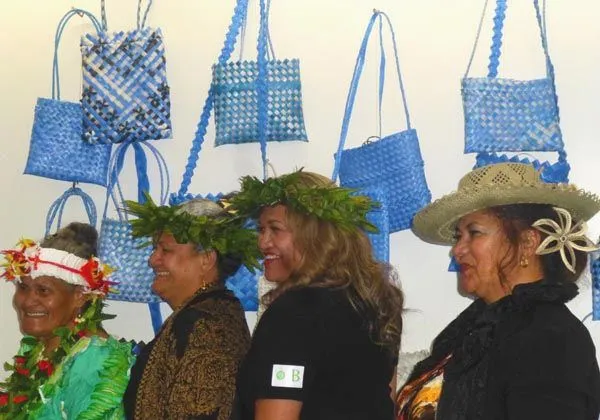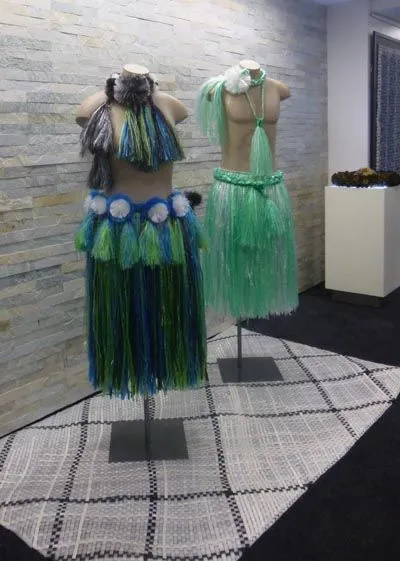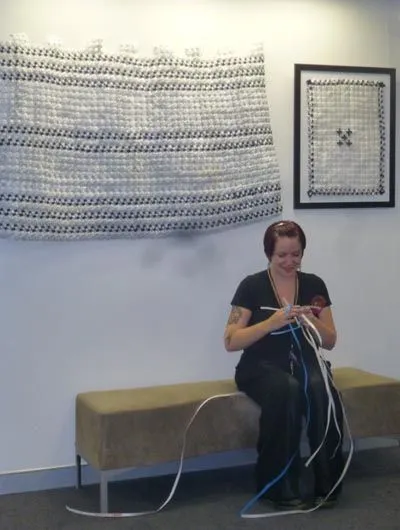Bowen House displays prisoners' weaving
Written by

Colourful baskets, garments and mats, woven from recycled materials by prisoners from Spring Hill Corrections Facility's Pacific Focus Unit (Vaka Fa'aola) are on display in Parliament's Bowen House in Wellington until 2 May.
Using recycled materials to weave teaches the prisoners about the importance of protecting the environment, says their tutor Mary Ama.
Donated by Auckland factories
Another benefit of using recycled materials such as plastic bags, packing tape and raffia is that they are readily available and donated by Auckland factories.
"The big factories love it," she says. "We take away their rubbish and use it to show prisoners how to create beautiful woven mats and baskets."
Mary Ama is of Cook Islands heritage and a leading tivaevae (Cook Islands quilting) artist. She's been passing on her skills and knowledge to prisoners in the Pacific Focus Unit since 2009.
The men take part in Saili Matagi, a group-based programme that teaches a range of skills so that participants can change attitudes and behaviours and reduce the likelihood of re-offending. The programme involves family and community groups in the prisoners' rehabilitation and reintegration, and connects back to their Pacific identity.
Learning about their cultural heritage
Each Saturday morning, 30 to 40 men sit on the floor of the fale (meeting house) in the Pacific Focus Unit. For the next three hours, they learn about their cultural heritage; discover new weaving techniques; and participate in storytelling and singing.
The Pacific Focus Unit and its cultural programmes are vital in teaching prisoners about the mana of their heritage, Mary says. "These men all come from backgrounds where they have missed out. Many of them have a natural talent but that's not enough. In our weekly sessions, we talk a lot about the importance of being proud of their cultural heritage."
The men need to accept the mistakes they have made, she says, and then learn about their heritage and who they are. Once those two things happen, they can move forward with motivation and greater confidence.
The arts and creativity are intrinsic to the Pacific way of life. For some of the prisoners, Mary says, weaving and making crafts using the donated recycled materials can be a source of income when they are released.
Volunteers from Pacifica Mamas
Two volunteers from Pacifica Mamas – a group of women representing cultures from the Cook Islands, Samoa, Tonga, Niue, Fiji, Tokelau, Tuvalu, Tahiti and Hawaii – join Mary and the Saturday morning classes.
Mary returns to Rarotonga as often as she can – usually three times a year – where she holds tivaevae workshops with local women.
"We share stories, skills and ideas, and I bring these back to Auckland with me," she explains. "I was in Rarotonga in December and I discovered a new pattern for a mat using the traditional knotting technique.
"I showed this technique to the men at Spring Hill and we've just completed some of these big mats using recycled plastics. The men really enjoyed sitting on the floor and working together on these mats. They told stories and talked about their grandfathers using the same knotting technique to make fishing nets."

